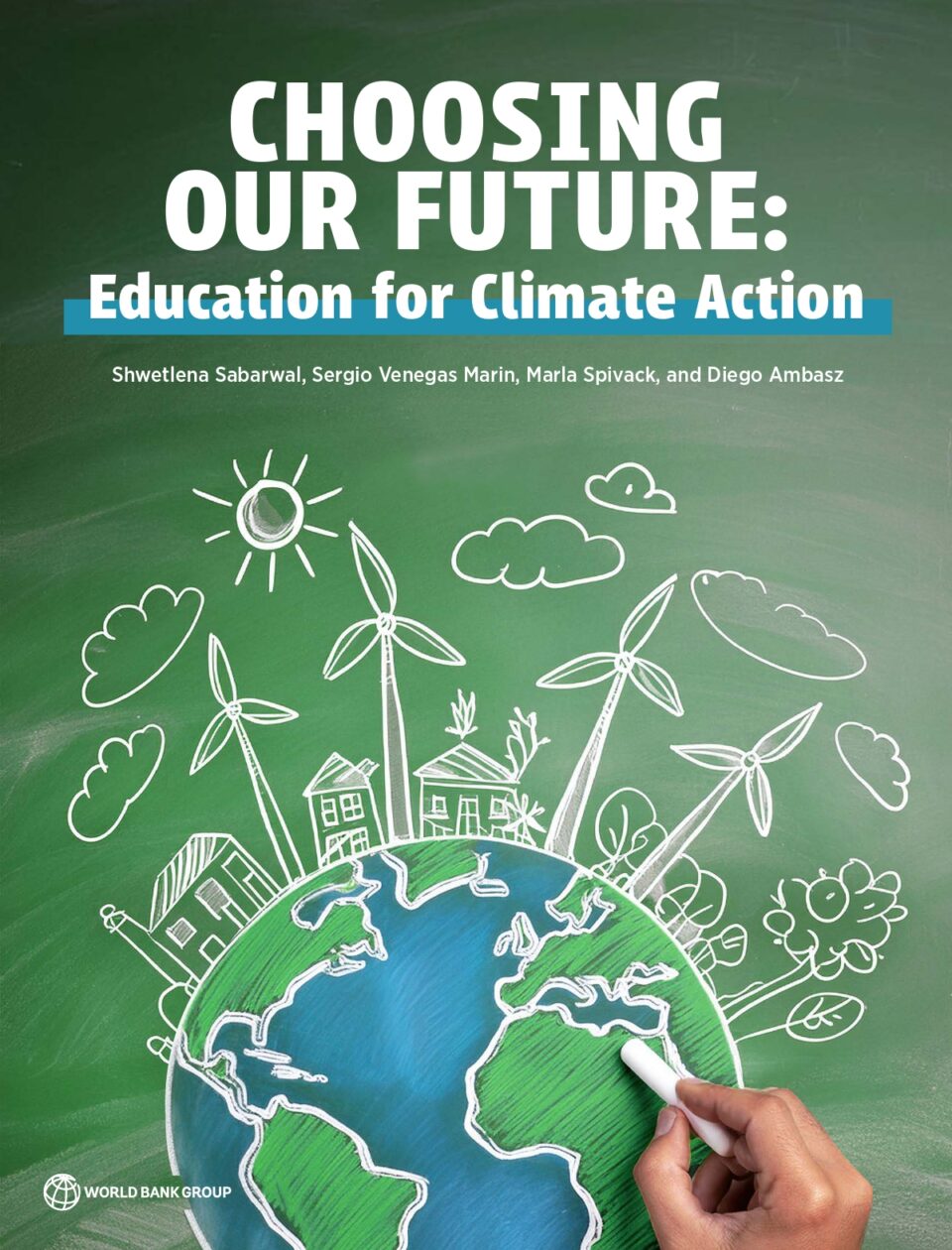A staggering 400 million students globally have experienced school closures due to extreme weather since 2022, according to a new World Bank report. The report examines the detrimental impacts of climate change on education in low- and middle-income countries and offers solutions to harness education to spur climate action. It also estimates that a one-time investment of $18.51 per child can mitigate the impact of climate shocks.
New analysis in the report, “Choosing Our Future: Education for Climate Action,” shows that the climate crisis is hitting education the hardest in low-income countries, with 18 school days lost annually on average, compared to 2.4 days in wealthier nations. A 10-year-old in 2024 will experience three times more floods, five times more droughts, and 36 times more heatwaves over their lifetime compared to a 10-year-old in 1970. Even when schools are open, students are losing learning due to climate impacts. In Brazil, students in the poorest 50% of municipalities could lose half a year’s learning due to heat alone.
Education is not only under threat from climate change—it is massively overlooked in climate financing. Past analyses have shown that a mere 1.5% of climate finance goes to education. However, new estimates in the report show that for $18.51 per child, schools can better safeguard learning from climate change by improving classroom temperature, building resilient infrastructure, and training teachers, among other adaptation measures.
Surveys in the report highlight the disconnect between the eagerness of young people in low- and middle-income countries to act and their lack of knowledge and skills. Around 65% of young people across eight countries believe their futures are at stake if they don’t develop green skills, but 60% also believe they didn’t learn enough about climate change in school. The report shows that each year of education increases climate awareness by nearly 9%, based on data from 96 countries. It argues that education is key to addressing these gaps in information, skills, and knowledge, and driving climate action worldwide by reshaping mindsets, behaviors, skills, and innovation.
The report lays out evidence, data, on-the-ground examples, and a policy agenda to support country efforts. For example, improving foundational and STEM skills, mainstreaming climate education, and building teacher capacity will help harness schooling for climate action. Governments can also prioritize green skilling and innovation in tertiary education to help supercharge a shift to more sustainable practices.

